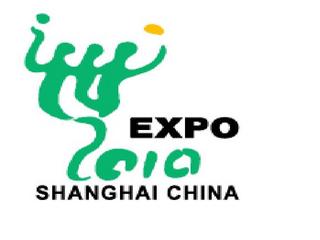A desert country ruled by a virtual dictatorship, Turkmenistan has drawn international interest for one reason: its enormous oil and natural gas deposits.
Published:
21 September 2001 y., Friday
Turkmenistan sits in central Asia, bordering the oil-rich Caspian sea to the west, Kazakhstan and Uzbekistan to the north, and Iran and Afghanistan to the south and west.
With only 3 percent of its land - a territory slightly larger than California - suitable for farming, the predominantly Muslim nation's economy is centered around oil and natural gas.
Since achieving independence with the collapse of the Soviet Union in 1991, the country has remained stable under the autocratic rule of President Saparmurat Niyazov, but has seen its economy contract sharply.
Much of the nation's history involves exploitation by despots; so much so that the 66 years it spent as part of the Soviet Union were a period of relative prosperity.
Even if the nation meets economic growth targets in 2001, however, GDP will still be only 59 percent of pre-independence levels.
Turkmenistan has been reluctant to line up with regional alliances. Its leaders have been feuding for years with neighboring countries over control of oil deposits below the Caspian Sea.
Recently, international aid groups have warned of a growing AIDS problem among Turkmenistan's 4.5 million inhabitants, as well as in the surrounding countries of Central Asia.
Šaltinis:
abcnews
Copying, publishing, announcing any information from the News.lt portal without written permission of News.lt editorial office is prohibited.
The most popular articles
 The European Parliament's proposal for its own operational budget for 2011 includes the financing of measures in preparation for enlargement with Croatia.
more »
The European Parliament's proposal for its own operational budget for 2011 includes the financing of measures in preparation for enlargement with Croatia.
more »
 Links between business and the academic world need to be strengthened but higher education institutions must retain their autonomy and public support, says a resolution adopted on Thursday by the European Parliament.
more »
Links between business and the academic world need to be strengthened but higher education institutions must retain their autonomy and public support, says a resolution adopted on Thursday by the European Parliament.
more »
 The Spanish Minister of Economy and Finance, Elena Salgado, will present the additional fiscal tightening measures set out by the Spanish Government to her eurozone (Eurogroup) counterparts on Monday; the measures were required by Spain’s European partners as a condition of approving the plan to bolster the euro on 9 May.
more »
The Spanish Minister of Economy and Finance, Elena Salgado, will present the additional fiscal tightening measures set out by the Spanish Government to her eurozone (Eurogroup) counterparts on Monday; the measures were required by Spain’s European partners as a condition of approving the plan to bolster the euro on 9 May.
more »
 The European Commission has opened an in-depth investigation under EU State aid rules into capital injections destined to two subsidiaries of state owned company Elan Skupina in Slovenia.
more »
The European Commission has opened an in-depth investigation under EU State aid rules into capital injections destined to two subsidiaries of state owned company Elan Skupina in Slovenia.
more »
 GDP growth in the EU expected to gradually pick up, though recovery less robust than past upturns.
more »
GDP growth in the EU expected to gradually pick up, though recovery less robust than past upturns.
more »
 The EESC tabled its opinion on the regulation of alternative investment funds, such as hedge funds and private funds. Although endorsing the much debated proposal of the European Commission, the EESC calls for uniform risk data provision for all such funds and emphasizes their responsibility in triggering the crisis.
more »
The EESC tabled its opinion on the regulation of alternative investment funds, such as hedge funds and private funds. Although endorsing the much debated proposal of the European Commission, the EESC calls for uniform risk data provision for all such funds and emphasizes their responsibility in triggering the crisis.
more »
 Concluding the process and deciding on the schedule for releasing the funds agreed on for Greece, as well as examining and learning lessons from the crisis for the governance of the eurozone, will be the focus of the discussions of the heads of state and government at the meeting in Brussels this Friday.
more »
Concluding the process and deciding on the schedule for releasing the funds agreed on for Greece, as well as examining and learning lessons from the crisis for the governance of the eurozone, will be the focus of the discussions of the heads of state and government at the meeting in Brussels this Friday.
more »
 The EU pavilion at the world expo in Shanghai marks the first time the EU has presented itself to a large Chinese audience.
more »
The EU pavilion at the world expo in Shanghai marks the first time the EU has presented itself to a large Chinese audience.
more »
 Shanghai's World Expo offers visitors plenty of fun offering bizarre things to do at over 200 pavillions competing for attention.
more »
Shanghai's World Expo offers visitors plenty of fun offering bizarre things to do at over 200 pavillions competing for attention.
more »
 The European Investment Bank (EIB) is providing a loan of EUR 150 million to MVM Zrt. for the capacity increase and the extension of a high-voltage transmission network, partly constituting priority axes of the Trans-European Energy Network (TEN-E) in Hungary.
more »
The European Investment Bank (EIB) is providing a loan of EUR 150 million to MVM Zrt. for the capacity increase and the extension of a high-voltage transmission network, partly constituting priority axes of the Trans-European Energy Network (TEN-E) in Hungary.
more »